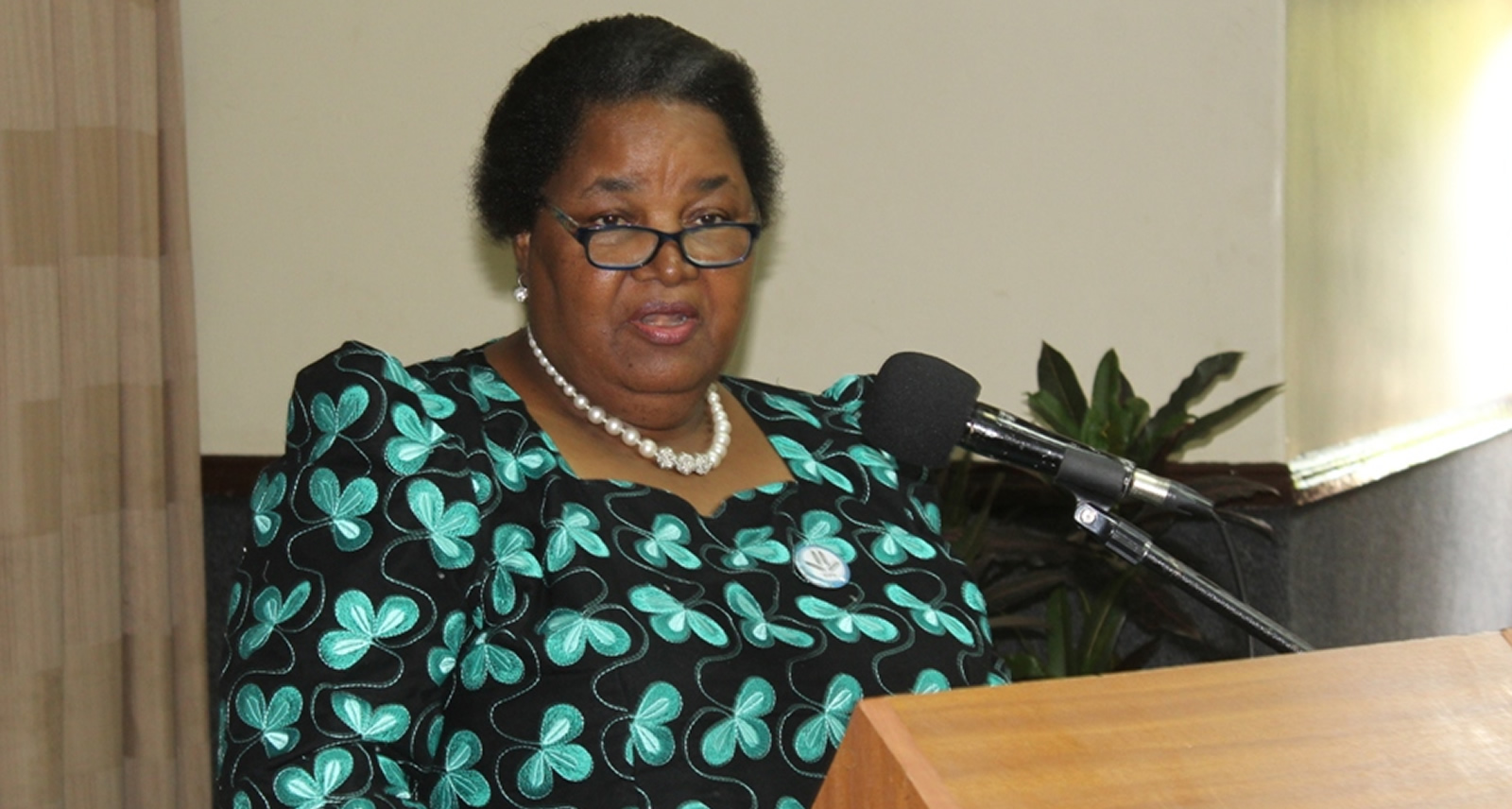Actualités

Tamanda Chimombo was 12 years old when her uncle married her off against her will. Fortunately for Tamanda, with family and community support, she was able to escape the marriage and return to school. Now she is pursuing her bachelors’ degree at St. John the Baptist University. Tamanda has a message for young girls in Malawi, to never give up, to have a vision and to stay in school.
On Friday, 27 October 2017, the Ministry of Gender, Children, Disability, and Social Welfare with support from AFIDEP, held a Gender Policy Dialogue aimed at promoting and strengthening the ongoing efforts to end child marriage in Malawi. The Dialogue which was held at the Sunbird Capital Hotel in Lilongwe, was presided over by Hon. Dr. Jean A. N. Kalilani, Minister of Gender, Children, Disability and Social Welfare, and moderated by Wisdom Nelson Chimgwede, a communications and media expert with ConCom PR and Consulting who has worked with UNDP.
Malawi’s child marriage burden
Prof. Nyovani Madise, Vice-Chairperson, AFIDEP Board of Directors, presented evidence on child marriage in Malawi, which has one of the highest rates of child marriage in the world. She noted the relationship between child marriage and education, that girls who stay in school are less likely to get married early, and that girls who marry early are less likely to stay in school, as well as differences in prevalence of child marriage by region, area, and socio-economic status. The percentage of women with no education who marry before the age of 18 is very high, 70 percent, while the percentage of women who marry before the age of 18 with secondary education is 31 percent. The Southern region has a significantly higher percentage of child marriages (51 percent) than the Central (37 percent) and Northern (12 percent) regions.
Prof. Madise noted some key drivers of child marriage in Malawi, including poverty, limited opportunities for girls after primary school, low aspirations, and harmful cultural practices and ideas that exist in different parts of the country, such as marrying girls off to pay a debt, early sexual initiation for girls, and stigmatization of adolescent pregnancy.
Prof. Madise challenged the audience to consider what it would take to end child marriage in one generation, or 25-30 years.
Together we can make a difference
In her remarks, Dr. Esmie Kainja, the Principal Secretary for Gender, engaged the audience on whether it should take 25 years to end child marriage in Malawi. She pointed out that upon discussion with the Minister, they had agreed that ending child marriage in 10 years would be better for the country. Further, Hon. Dr. Jean A. N. Kalilani noted that the government cannot achieve this single-handedly. « We all as Malawians have a critical role to play in ending child marriage, » she said.
A panel of experts comprised of Hon Dr. Jean A. N. Kalilani, Dr. Esmie Kainja, Hon. Deus Gumba, MP from Mchinji, Senior Chief Chikumbu from Mulanje, Mr. Emma Kaliya of the NGO Gender Coordination Network, and Ms. Chikondi Mandala of the High Court of Malawi, then discussed best practices.
Senior Chief Chikumbu noted the need to move from high-level discussions of the child marriage to discussions at the community level, where the issue is « a need that was echoed by other participants. Ms. Kaliya spoke about the role of civil society, and the need for the Ministry to work with civil society organizations (CSOs) to get to the root causes of child marriage, as poverty is only part of the answer « for example, children are sometimes excited to be married. Ms. Mandala discussed the role of the courts, and the need for the judiciary to recognize other societal factors (i.e. poverty) that play into the issue of child marriage when making decisions.
Other key points that arose were the important role of parents, the need to support children once they have been extracted from a marriage, the need to involve youth in discussions of child marriage, the need to engage « duty-bearers » at the community level such as religious leaders and traditional marriage counselors, and the need for role models for girls that show the importance of staying in school and having aspirations greater than simply being a wife.
Of importance is what needs to be done to end child marriage in Malawi 10 years, so that girls like Tamanda know their rights, are protected from violence, have a proper childhood, and get an education. In collaboration with partners, Ministry plans for a countrywide dissemination of the amended provision in the constitution and other statutes. Also planned is a collaboration with Ministry of Justice to conduct an audit of other relevant laws for review. Those present hoped to continue the dialogue and move to action in affected communities, where there is need to address harmful cultural practices, come up with strategies to fund the campaign to end child marriage, and enable those responsible with implementing the law at the community level.





